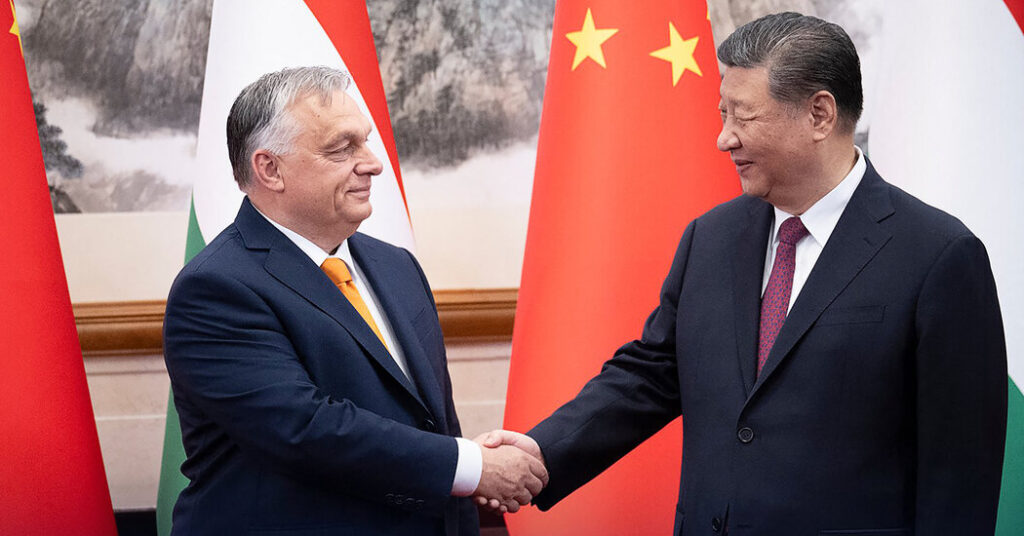Hungarian Prime Minister Viktor Orban met with Chinese leader Xi Jinping in Beijing on Monday and made overtures to another authoritarian partner following talks with Russian President Vladimir Putin in Moscow last week.
In announcing Mr Orban’s visit to Beijing, China’s official news agency Xinhua said only that Mr Xi would “have in-depth discussions with him on issues of common concern”. The two leaders last met two months ago, when Xi Jinping visited Budapest to restore China’s influence in Europe.
Chinese state television said Xi and Orban were holding talks at the Diaoyutai State Guesthouse, but gave no other details.
The meeting will provide an opportunity for Xi Jinping and Orban to urge the EU to distance itself from Washington. Hungary’s six-month presidency of the Council of the European Union begins this month, giving Orban greater visibility but less influence in broader European affairs.
According to Chinese official meeting minutes, Xi Jinping told Orban in May this year: “China and Hungary have similar philosophies and both advocate independence.”
Western European leaders have long distanced themselves from Mr Orban and when he visited Moscow last week they stressed he did not speak for the EU. They are likely to be equally skeptical about Orban’s talks with Xi Jinping in Beijing, where the two leaders are expected to discuss the war in Ukraine.
Mr Orban’s visit to China comes ahead of a three-day NATO summit in Washington on Tuesday. In those talks, President Joe Biden and other Western leaders are likely to offer more support to Ukraine in its war against Russian aggression but will not join in as Ukrainian President Volodymyr Zelensky has urged NATO.
Orban described his trip to Beijing as continuing a “peace” mission for Ukraine, a term Hungary uses to describe a settlement based on Ukraine’s surrender to Russian demands. He visited Russia last week, the first time an EU leader has traveled there for formal talks with Putin since the early months of Russia’s invasion of Ukraine.
Orban met Zelensky in Kiev ahead of his visit to Moscow, a move that observers viewed as a move by the Hungarian leader to end his isolation in Europe over Ukraine. His visits to Ukraine, Russia and China were unannounced.
Orban has broadly called on Moscow and Kiev to agree to a ceasefire and direct talks, but he has not made any specific public proposals for a lasting solution.
Likewise, Xi Jinping has pushed for a vague framework for peace talks between Ukraine and Russia while remaining careful to maintain a strong relationship with Putin. China’s Ministry of National Defense announced on Sunday that the Chinese military will participate in military exercises in Belarus, Russia’s neighbor and close partner, in mid-July. The Ministry of National Defense said the joint exercises would focus on “anti-terrorism” operations and hostage rescue.
Talks between Orban and Xi will give them another opportunity to highlight their shared antipathy to Western security alliances and criticism of human rights.
Mr Orban, once a critic of China’s ruling Communist Party, has become a staunch partner. He has often spoken out against EU criticism of China’s hard-line policies in western regions such as Hong Kong, Tibet and Xinjiang, where Uighurs and other predominantly Muslim minority groups have suffered mass internment.
In May, Mr. Xi Jinping and Mr. Orban formally elevated Sino-Hungarian relations to an “all-weather comprehensive strategic partnership” — Chinese diplomatic jargon that hints at a deep and enduring bond.
“We regard each other as a priority partner,” Xi Jinping wrote of relations with Hungary at the time.

